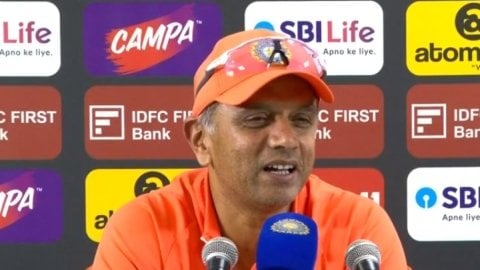
International Cricket Council: The dramatic third T20I between India and Afghanistan had a defining moment when captain Rohit Sharma astonishingly retired out in the first super over, and walked out to bat again in the second super over.
The clause 22 of Appendix F in playing conditions for Men's T20Is, as per the International Cricket Council (ICC), says, "Any batsman dismissed in any previous Super Over shall be ineligible to bat in any subsequent Super Over."
It hasn’t come to the light if Rohit had retired out or was retired hurt. In the first super overs, Rohit hit two sixes, before astonishingly coming to the dugout to have Rinku Singh do the running on the last ball, with the initial assessment being that India put out a quicker runner between the wickets. Rohit then came out to bat in the second super over, making 11 runs before being run-out.

